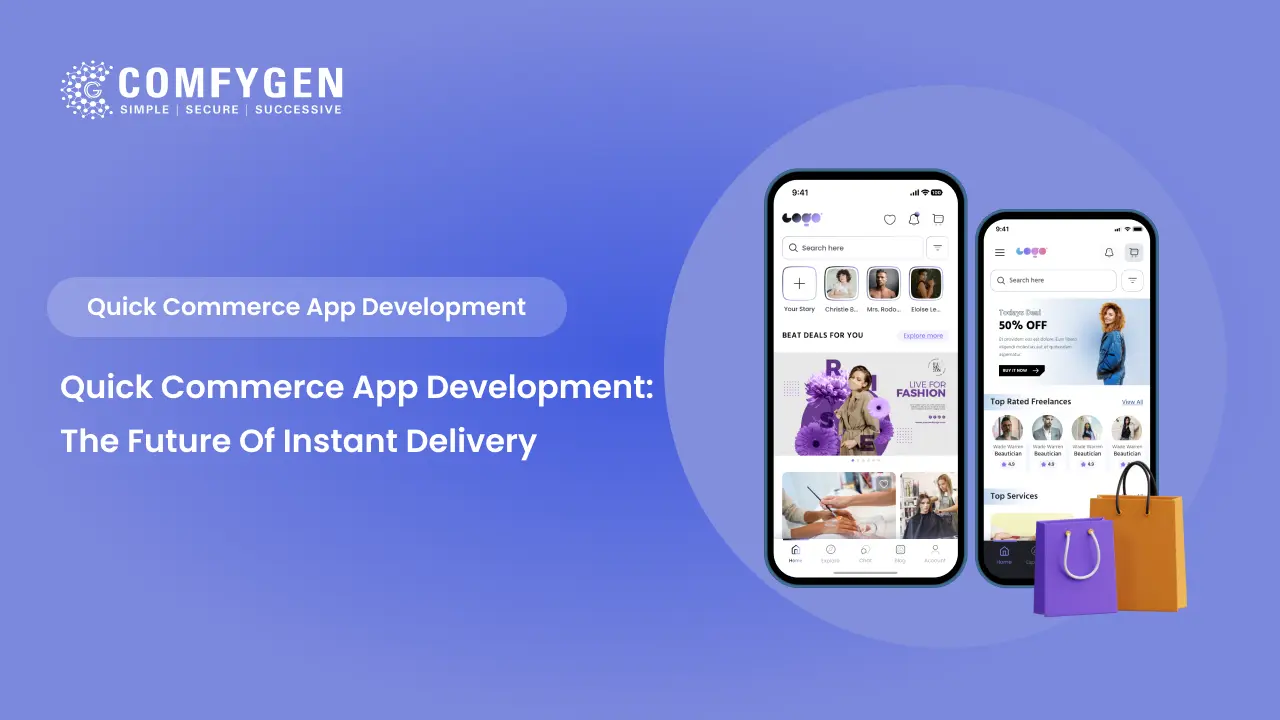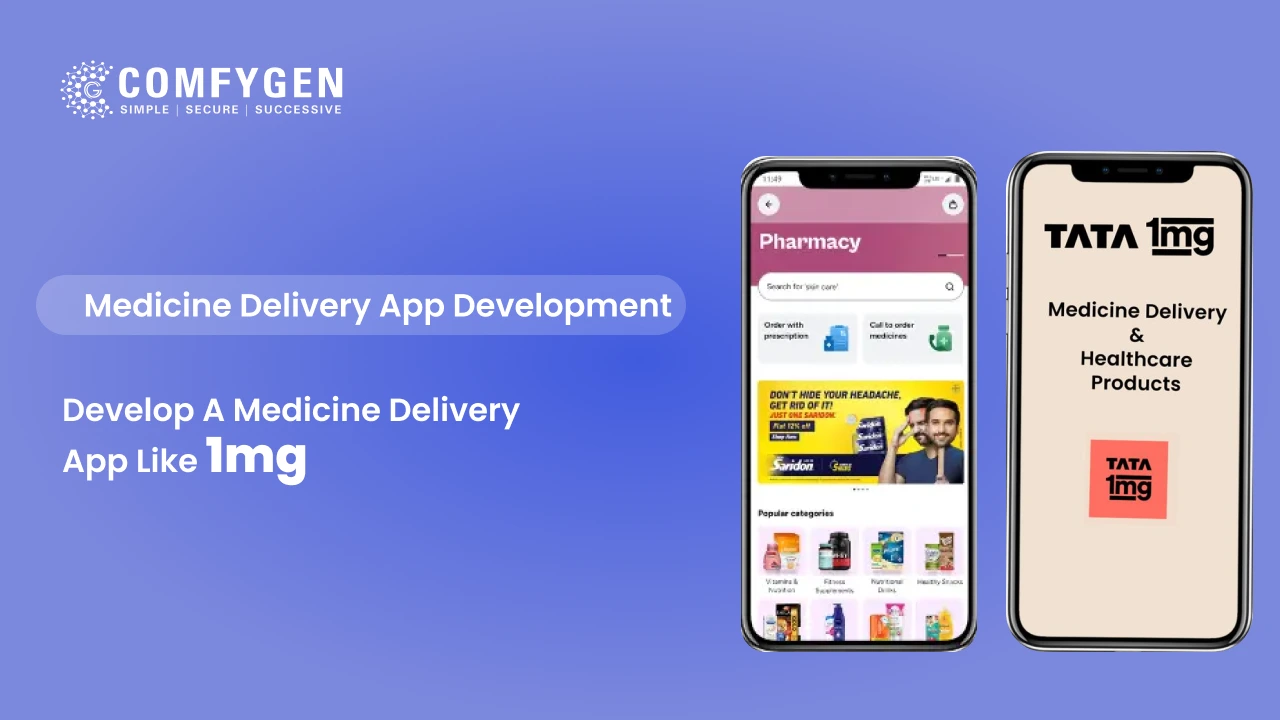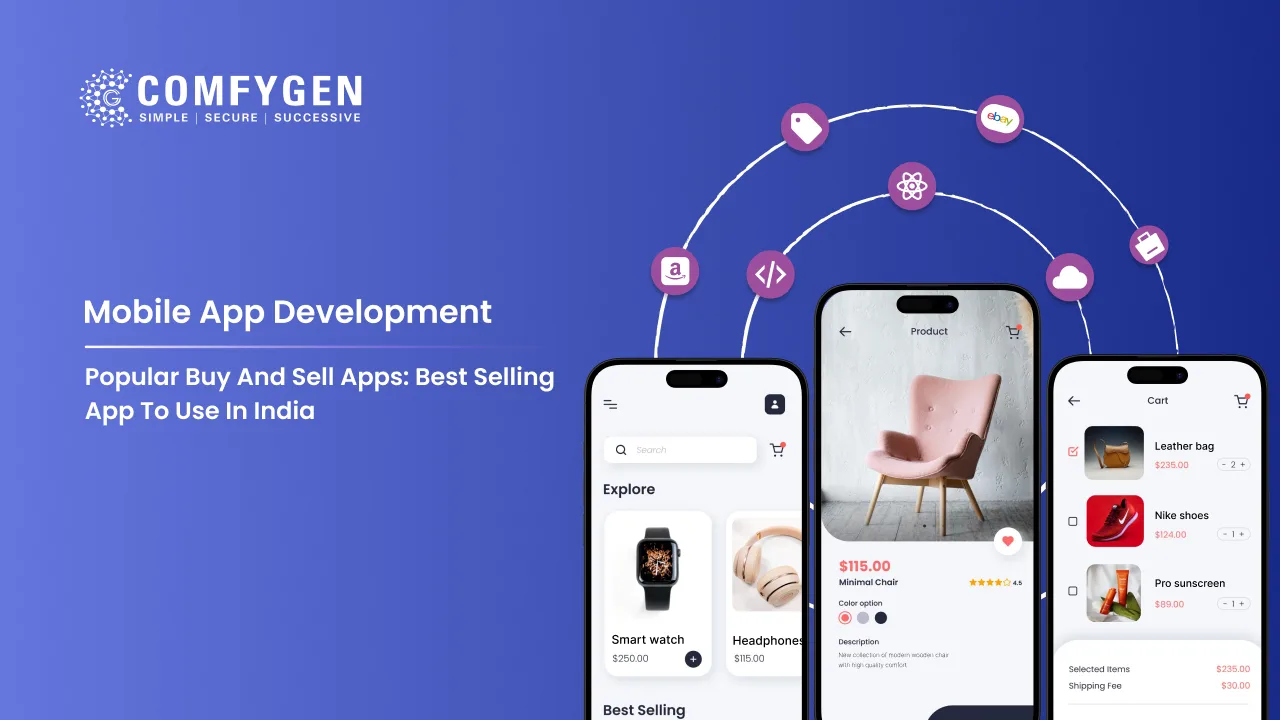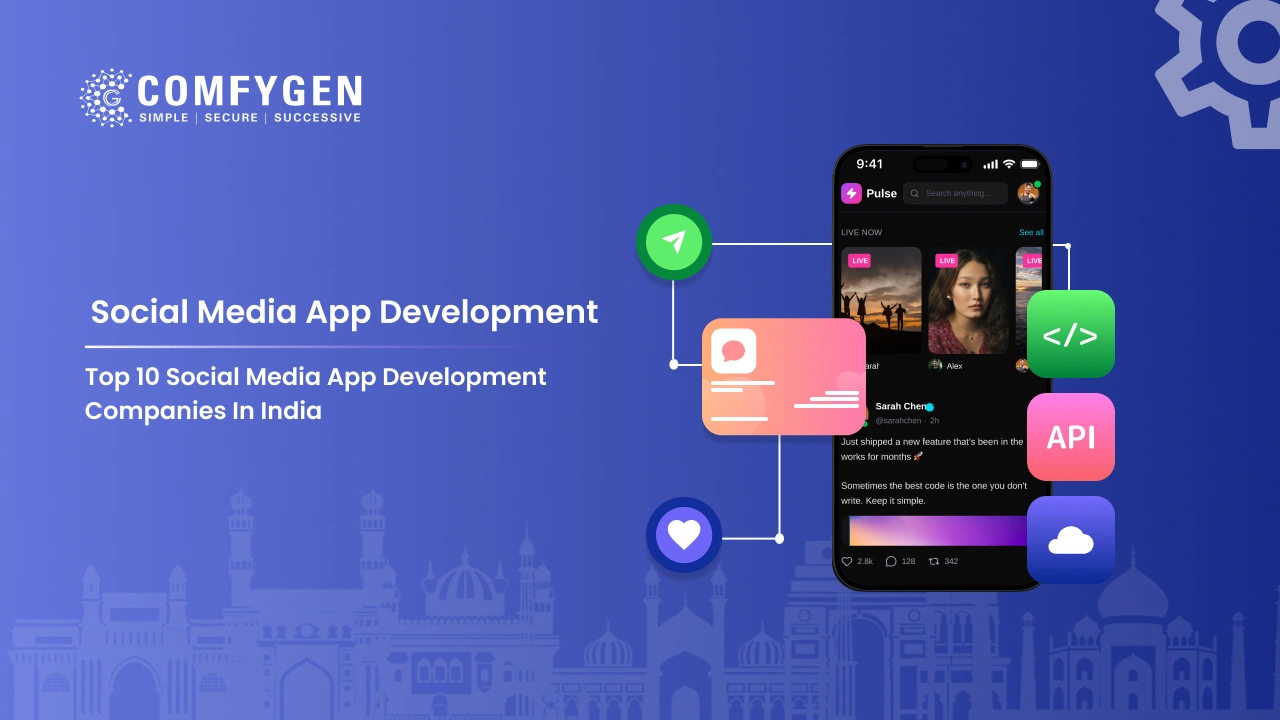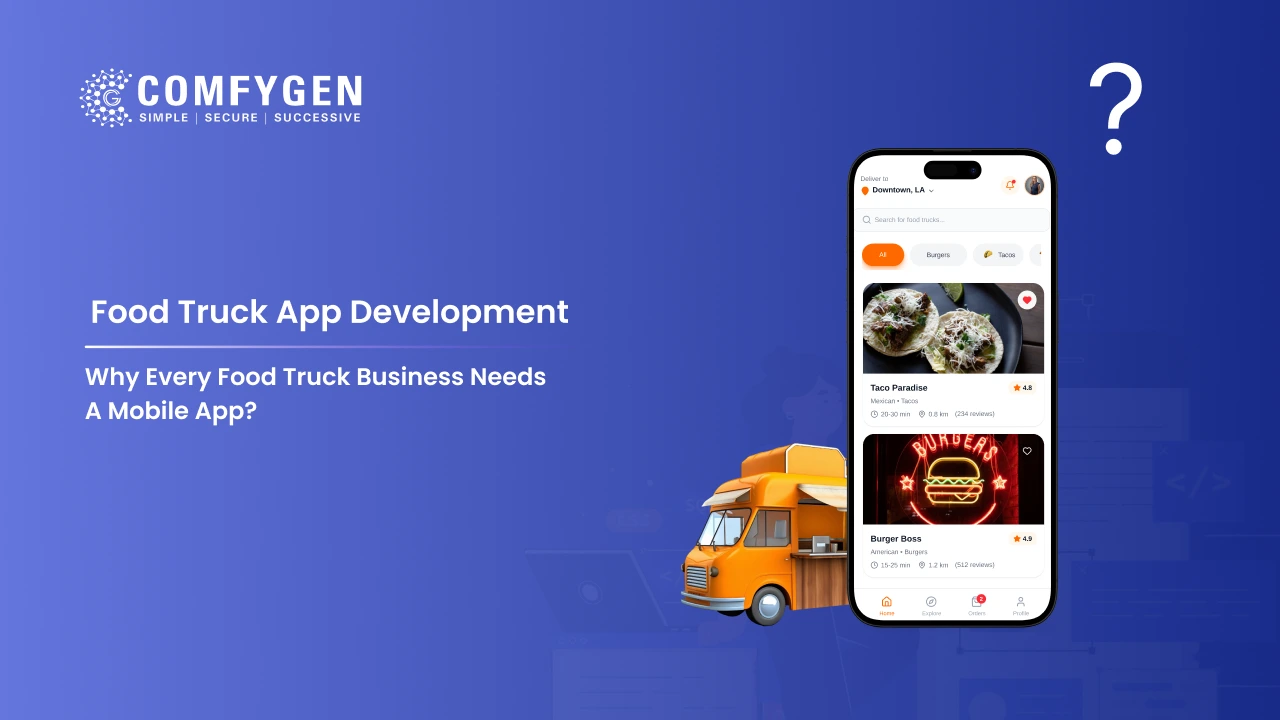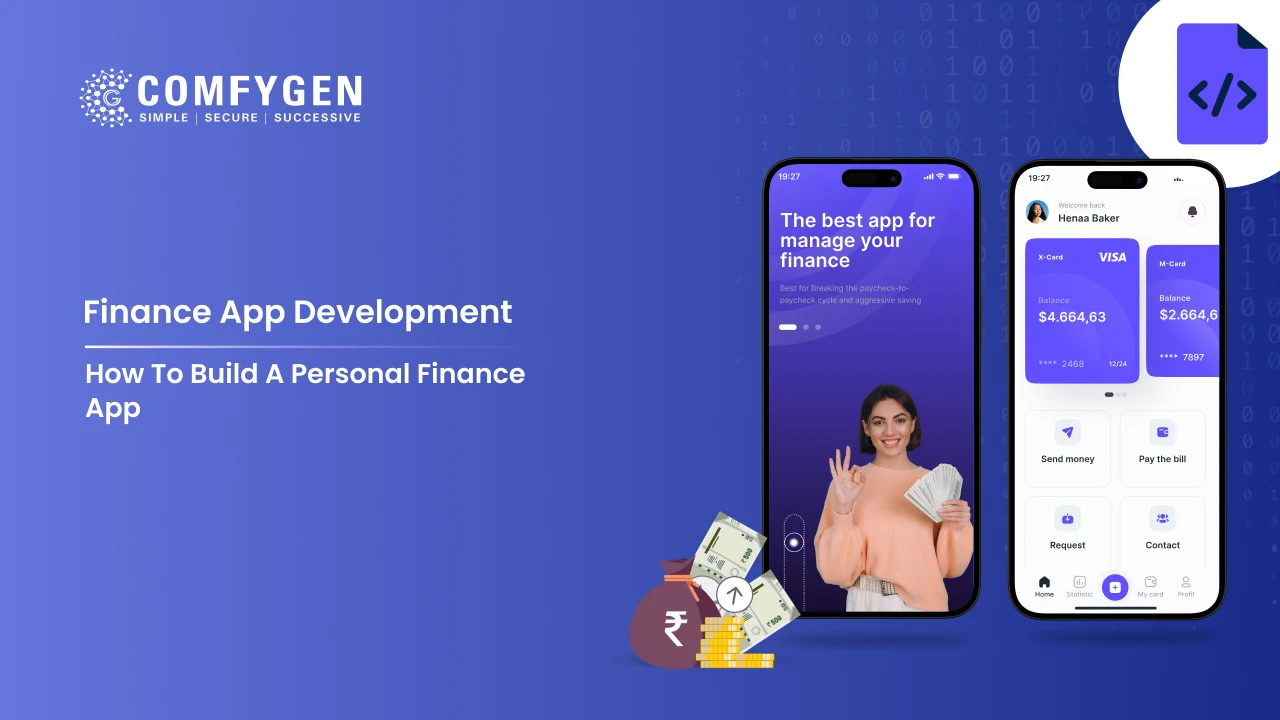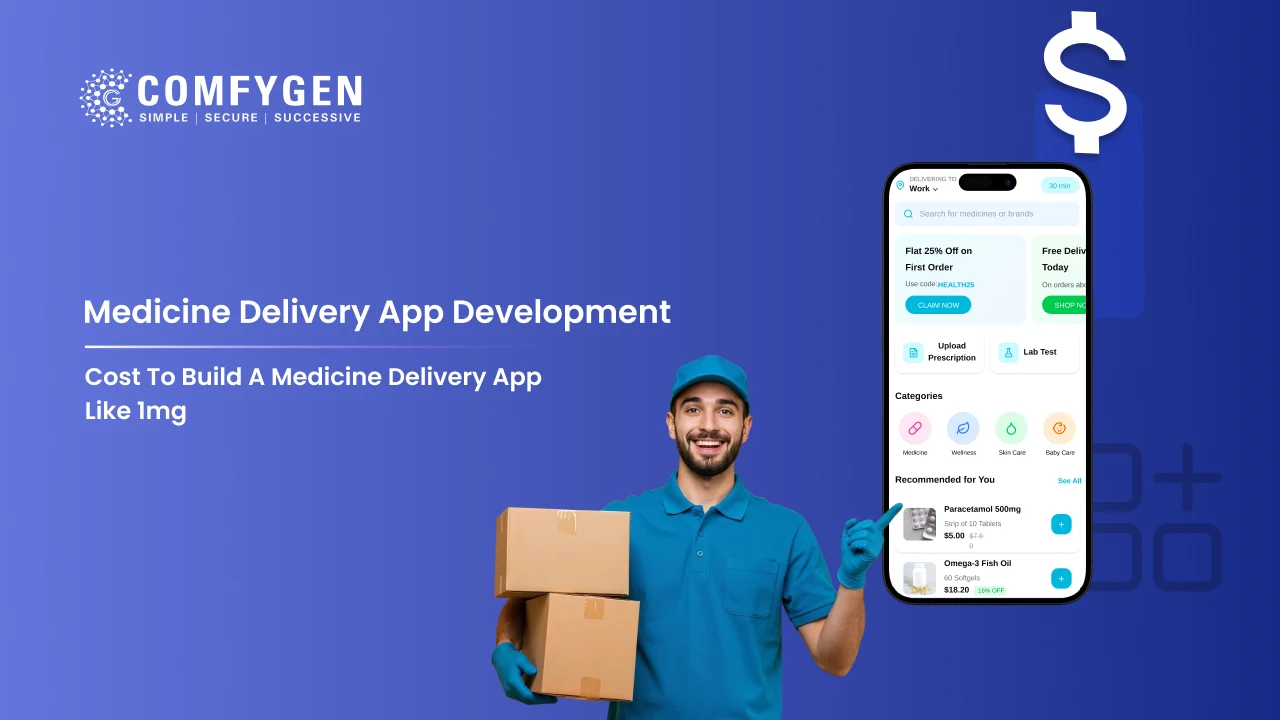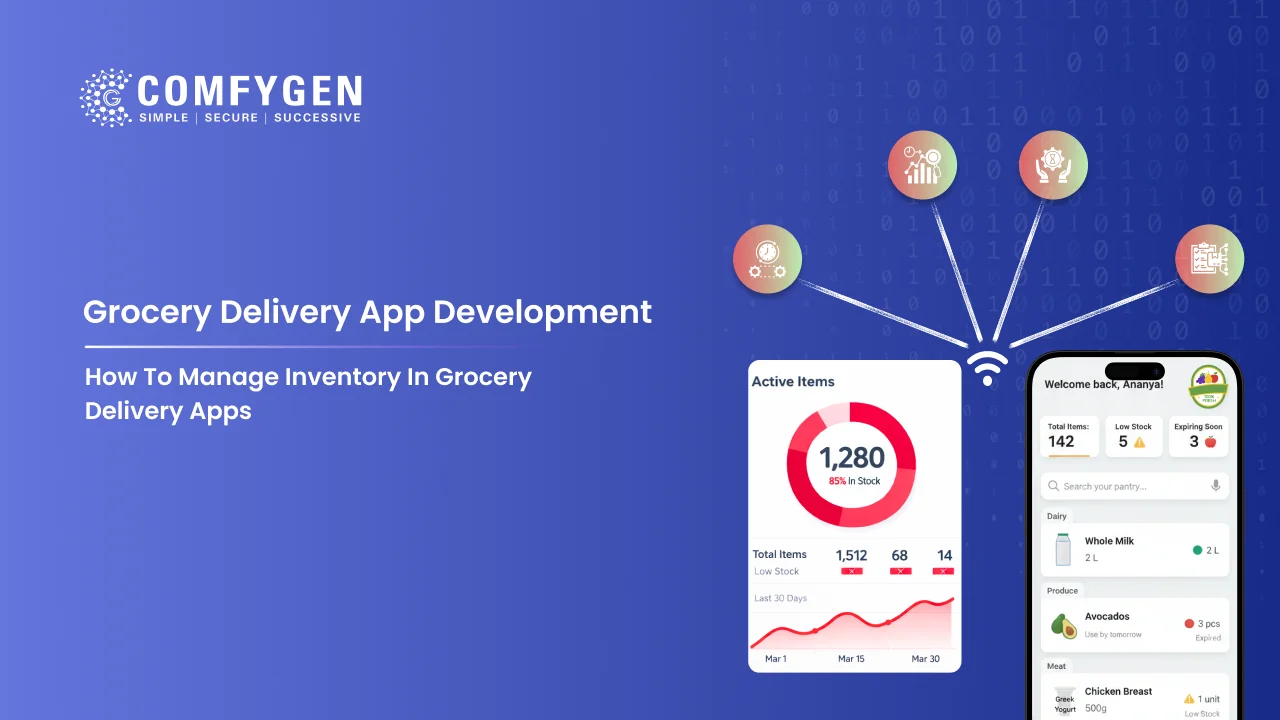Quick Commerce App Development: The Future of Instant Delivery
Quick Commerce, also known as Q-Commerce, is the next generation of e-commerce focused on ultra-fast delivery within 10–20 minutes of ordering. Unlike traditional delivery systems, quick commerce apps use hyperlocal delivery networks, dark stores, and micro-warehouses to deliver essential goods rapidly.
As customers demand faster service and instant access to products, Quick Commerce app development has become a high-growth market for startups and enterprises.
Why Quick Commerce is the Future of Instant Delivery
The modern customer expects speed, convenience, and reliability. Quick commerce fulfills these expectations with real-time order processing, rapid dispatch, and route optimization.
The increasing adoption of grocery, medicine, food, and daily essentials apps clearly shows that instant delivery is the future of online shopping.
Startups and local businesses are investing in Quick Commerce app development solutions to boost revenue, retain customers, and stay ahead of competitors.
How Quick Commerce Apps Work
A Quick Commerce app uses smart technology and location-based fulfillment to ensure faster deliveries.
When a user places an order:
- The app identifies the nearest dark store or warehouse.
- The order is processed automatically.
- A delivery partner is assigned based on proximity and availability.
- Real-time tracking updates allow customers to monitor each step.
This seamless process is supported by AI algorithms, automated inventory management, and intelligent logistics systems, ensuring high delivery efficiency.
Market Boom & Trends of Quick Commerce App Development in India and Abroad
India’s Quick Commerce Market
India’s Quick Commerce industry is experiencing exponential growth, fueled by a digital-first population and increasing urbanization. With over 1.2 billion smartphone users, India is rapidly shifting towards instant delivery services.
Market Size Projection: Expected to reach $5.5 billion by 2025, growing at a CAGR of over 45%.
Growth Drivers:
- Urban dwellers’ demand for convenience and time-efficiency
- Increase in nuclear families and working professionals
- Rising disposable incomes in Tier 1 and Tier 2 cities
- Expansion of dark stores, micro-warehouses, and hyperlocal delivery networks
Mobile-First Behavior: 85%+ of Q-Commerce transactions are made via mobile apps, showcasing India’s mobile-driven consumer ecosystem.
Startup Ecosystem: VC funding is accelerating. Startups like Zepto and Blinkit are expanding aggressively with AI and data-driven logistics.
Global Quick Commerce Market
The Q-Commerce model is gaining traction across North America, Europe, and the Middle East, where consumers demand speed and personalization.
-
Market Size Projection: Global Q-Commerce market is projected to exceed $75 billion by 2030.
-
Adoption Zones: Rapid growth in urban centers in the USA, UK, Germany, Spain, Turkey, and UAE.
-
Dark Store Networks: Europe is leading the way with automated dark stores and robot-run fulfillment hubs that enable deliveries under 15 minutes.
-
Post-Pandemic Behavior: COVID-19 normalized contactless, fast delivery, and digital ordering, permanently altering global consumer expectations.
Industry-wise Use Cases & Solutions
Quick commerce is no longer limited to groceries. Here’s a breakdown of how different industries are using it:
| Industry | Use Cases | Solutions Offered |
| Grocery & FMCG | Milk, veggies, snacks, beverages | 10-minute delivery via dark stores, smart inventory |
| Pharmaceuticals | OTC medicines, hygiene products | 24/7 medicine delivery, AI-based symptom check |
| Food & Beverage | Snacks, ice cream, ready-to-eat | Hyperlocal cloud kitchen integration |
| Beauty & Personal Care | Skincare, toiletries, grooming | Subscription & auto-reorder features |
| Electronics | Mobile accessories, wearables | Limited SKUs with predictive demand stocking |
| Pet Supplies | Pet food, toys, and grooming items | Scheduled weekly deliveries, smart alerts |
Key Features of Quick Commerce App Development
To ensure fast order fulfillment and a smooth delivery experience, Quick Commerce app development includes three major components — the User App, Delivery Agent App, and Admin Panel. Each plays a crucial role in building a high-performing instant delivery ecosystem.
User App Features for Quick Commerce
A user-friendly design and fast ordering experience help increase conversions and customer loyalty. Essential Quick Commerce user app features include:
One-Tap Signup & Secure Login: Quick onboarding through mobile OTP, email, Google, or Apple login enhances user experience.
Smart Product Search & Categorization: AI-powered search and filters allow users to find items instantly, improving order speed.
Real-Time Order Tracking: Live delivery updates and GPS insights build trust and transparency in fast delivery services.
Multiple Payment Gateways: Support for UPI, wallets, cards, COD, and net banking ensures faster checkout.
Push Notifications & Offers Alerts: Personalized updates for real-time order status, deals, and promotions boost engagement.
Delivery Agent App Features
The delivery boy/partner app ensures quick dispatch and optimized last-mile logistics for instant delivery platforms.
Order Assignment & Status Updates: Delivery agents receive nearby orders instantly for faster acceptance and dispatch.
GPS Navigation & Route Optimization: Smart routing reduces delivery time and fuel cost — crucial for 10-minute delivery apps.
Digital Proof of Delivery (POD): OTP or QR verification confirms successful order completion securely.
Earnings History & Performance Dashboard: Helps delivery partners track their income and delivery metrics.
Admin Panel Features
The admin console is the central control system for Quick Commerce delivery management, enabling full operational visibility and automation.
Inventory & Warehouse Management: Automated stock updates ensure order accuracy and prevent product unavailability.
Real-Time Fleet & Order Monitoring: Complete tracking of every order, driver, and warehouse activity.
Customer & Vendor Management: Supports multi-vendor onboarding, ratings, commissions, and service quality checks.
Analytics & Reporting Dashboard: Data-driven insights for business forecasting, pricing optimization, and sales growth.
Advanced Features Shaping the Future of Instant Delivery Apps
To compete with leading platforms like Blinkit and Zepto, these next-gen features are essential for Quick Commerce mobile app development.
AI & Machine Learning Automation
Automated decision-making for demand prediction, personalized recommendations, and order routing improves efficiency.
Real-Time Route Optimization & Tracking
Smart navigation tools identify the fastest delivery routes based on traffic and geographic conditions.
Automated Warehouse & Inventory Systems
Micro-fulfillment centers and dark stores ensure 10–15 minute delivery by keeping products closer to users.
Subscription & Loyalty Programs
Membership plans, referral bonuses, and cashback improve retention and long-term revenue.
Drones & Autonomous Delivery Technology
Future-ready systems promise ultra-fast delivery without increasing manpower costs.
Data Analytics & Predictive Algorithms
Improved decision-making for stock planning, delivery performance, and customer behaviour analysis.
Role of AI in Quick Commerce App Development
AI isn’t just an add-on in Q-Commerce—it’s the core engine that drives speed, intelligence, and personalization.
Predictive Inventory Management
AI-powered q-commerce app development forecasts demand patterns using data from location, weather, time, and past behavior, minimizing stockouts.
Smart Routing & Dispatch
AI analyzes real-time traffic and delivery constraints to assign the fastest routes and best delivery personnel.
Dynamic Pricing Algorithms
Prices can auto-adjust based on inventory, demand spikes, competitor prices, and time of day.
Personalization Engines
AI analyzes individual user behavior to recommend products, create smart carts, and improve UX.
AI-Powered Chatbots
AI bots manage user queries, refunds, complaints, and order modifications 24/7—reducing manpower costs.
Key Trends in Quick Commerce
Dark Stores & Micro-Fulfillment Centers: Businesses are creating small, strategically placed, inventory-packed warehouses to reduce delivery times to under 20 minutes.
AI-Driven Logistics & Route Optimization: AI enables dynamic routing and predictive order batching, ensuring timely and cost to develop Qcommerce-effective deliveries.
Voice Commerce & Smart Device Integration: Integration with Alexa, Google Assistant, and Siri allows users to reorder items hands-free.
Green Deliveries: E-bikes, electric scooters, and sustainable packaging are being adopted to reduce carbon footprint.
IoT & Wearables: Smart refrigerators and wearable apps are being used to track product levels and auto-order groceries.
Benefits of AI-Powered Quick Commerce App Development
| For Users | For Businesses |
| Faster delivery & better ETAs | Higher efficiency & cost reduction |
| Personalized offers & carts | Smart inventory & reduced wastage |
| Auto-order suggestions | Better customer retention |
| Seamless returns & refunds | Smarter logistics & routing |
| Voice-activated ordering | Data-driven decision making |
Top 20 Instant Delivery Apps You Should Know
Zepto
Zepto is known for its ultra-fast 10-minute grocery delivery model using micro-warehousing and real-time logistics. If you’re planning to develop an app like Zepto, it’s crucial to integrate AI systems that manage dark store inventory, delivery route optimization, and customer ordering behavior.
Blinkit
Blinkit has carved its space in the Q-commerce segment with a robust logistics model and a commitment to 15–20 minute deliveries. If you’re looking to build an instant delivery app like Blinkit, focus on features like real-time inventory management, location-based pricing, and AI-driven order fulfillment.
Swiggy Instamart
Swiggy Instamart efficiently merges instant grocery delivery with existing food delivery infrastructure. If your goal is to make an app like Swiggy Instamart, AI helps maximize fleet efficiency and offer personalized grocery deals.
Zomato
Zomato, known primarily for food delivery, has tested quick commerce through its now-retired Zomato Instant concept. However, Zomato continues to influence how AI and quick commerce intersect. If you’re planning to develop an app like Zomato with instant delivery features, we can assist you better.
BigBasket Now
BigBasket Now offers express delivery services for groceries via city-based hubs. To design an app like BigBasket Now, you’ll need AI features such as forecast-based inventory restocking, customer group segmentation, and smart filters.
Dunzo
Dunzo Daily delivers groceries, parcels, and essentials hyperlocally. If you want to create an app like Dunzo, your development should focus on hyperlocal routing, AI-based multi-order handling, and contextual recommendations.
Flipkart Quick
Flipkart Quick delivers daily essentials fast by leveraging local inventory. If you’re planning to build an app like Flipkart Quick, integrate AI for demand forecasting, route optimization, and real-time stock updates.
Amazon Fresh
Amazon Fresh ensures fast grocery delivery with a wide product range. If you’re planning to develop an app like Amazon Fresh, use AI for smart inventory management, user preferences, and delivery scheduling.
JioMart Express
JioMart Express connects local stores with users for quick grocery delivery. If you’re planning to create an app like JioMart Express, include AI-based delivery routing, store selection, and order prediction features.
Country Delight
Country Delight excels in daily essentials and dairy delivery using a subscription model. If you’re planning to launch an app like Country Delight, include AI-driven consumption predictions, freshness monitoring, and delivery routing.
Gopuff (US)
Gopuff delivers everyday convenience goods—snacks, drinks, and home essentials—within 30 minutes. If you’re planning to develop an app like Gopuff, focus on warehouse efficiency, rapid delivery, and inventory control.
Getir (Turkey)
Getir offers ultra-fast delivery of essential items like groceries and personal care products in under 10 minutes. If you want to build an app like Getir, prioritize dark store integration and fast dispatch systems.
Gorillas (Germany)
Gorillas specializes in delivering fresh groceries from micro-warehouses in minutes across urban areas. If you’re planning to create an app like Gorillas, ensure real-time inventory sync and strong local fulfillment.
Flink (Flink)
Flink promises 10-minute grocery delivery using local hubs and eco-friendly transportation. If you want to make an app like Flink, focus on route planning, last-mile delivery optimization, and sustainable logistics.
Zapp (UK)
Zapp delivers essentials like snacks, drinks, and household goods 24/7, often within minutes. If you’re planning to build an app like Zapp, consider instant inventory access, 24×7 operations, and efficient order clustering.
Glovo (Spain)
Glovo delivers food, groceries, medicines, and retail items quickly from nearby stores. If you’re looking to develop an app like Glovo, enable multi-category ordering, reliable courier tracking, and seamless payments.
Deliveroo Hop (UK)
Deliveroo Hop partners with supermarkets to offer fast grocery deliveries via dark stores. If you want to make an app like Deliveroo Hop, focus on stock management, delivery slots, and real-time updates.
Uber Eats Quick (Global)
Uber Eats Quick expands into groceries and essentials alongside its core food delivery services. If you’re planning to build an app like Uber Eats Quick, ensure category-wise optimization and fast, flexible logistics.
DoorDash DashMart (USA)
DashMart by DoorDash offers quick delivery from its own dark stores, focusing on convenience items. To develop an app like DashMart, emphasize warehouse setup, item bundling, and order flow efficiency.
Instacart (USA)
Instacart connects users with personal shoppers for scheduled grocery delivery from local stores. If you’re looking to create an app like Instacart, focus on shopper assignment, store integrations, and real-time inventory tracking.
Business Models for Quick Commerce Delivery Apps
Choosing the right business model is essential for building a profitable instant delivery platform. In Quick Commerce App Development, different models help businesses decide how they operate, manage inventory, and fulfill orders efficiently.
Inventory-Led Model
The Inventory-led model is where the company manages its own stock through micro-warehouses, dark stores, and fulfillment centers.
Products are stored and controlled directly by the business, allowing faster delivery, better quality checks, and efficient order processing.
This model is ideal for grocery instant delivery, medicines, and daily essentials, where accuracy and quick availability are crucial.
Marketplace Model
In the Marketplace model, the Quick Commerce app connects multiple sellers, supermarkets, and retailers on a single platform.
The business does not manage inventory but provides a system where vendors list items and use a fleet or third-party delivery service.
This model supports rapid scalability and is best for startups launching a Quick Commerce platform with minimal operational costs.
Aggregator & Hybrid Model
The Aggregator model partners with existing local stores and delivery service providers to fulfill orders. Meanwhile, the Hybrid model combines the marketplace and inventory-led approach to enhance availability and delivery speed.
It reduces dependency on a single supply chain structure and maximizes efficiency, especially for instant delivery app development targeting large cities and multi-category delivery apps.
Benefits of Quick Commerce App Development for Businesses & Startups
Investing in Quick commerce app development provides enormous growth opportunities for modern retailers and new entrepreneurs.
Faster Conversions
Quick Commerce apps enable real-time order fulfillment and 10–15 minute deliveries, which significantly improve conversion rates. Faster deliveries increase customer satisfaction and encourage users to repeat orders frequently, helping businesses scale rapidly.
Customer Loyalty & Retention
With instant access to essentials and a seamless ordering experience, customers become more loyal to brands that deliver convenience.
Features like membership programs, personalized offers, and subscription-based delivery help build long-term user relationships and boost retention rates.
Competitive Advantage
As instant delivery becomes the new industry standard, launching a Quick Commerce delivery app helps businesses stay ahead of competition.
Startups and enterprises gain a strong market position by offering hyperlocal delivery solutions, a wide product range, and superior service speed, making them more attractive than traditional e-commerce platforms.
How Comfygen Technologies Helps You Build the Perfect Q-Commerce App
With over 10 years of expertise, Comfygen Technologies stands out as a premier Quick Commerce app development company, we delivering high-performance, scalable, and user-focused Q-commerce app development services.
Our dedicated developer AI integration, real-time data processing, and robust security architecture to develop quick commerce apps that offer seamless user experiences and ultra-fast delivery solutions.
We target on agility, innovation, and future-ready technologies to empower your Q-commerce business in today’s dynamic digital marketplace.
Our Quick Commerce Development Services:
-
App UI/UX Design for Users, Delivery, and Admin
-
End-to-End Development: Android, iOS & Web
-
Real-time Inventory & Smart Dispatch System
-
AI Integration for Personalization & Forecasting
-
Secure Payments & Wallet System
-
Post-launch Support, Analytics, and Scaling
Final Thoughts
Quick Commerce is not a fad—it’s the future of urban living and instant gratification. Whether it’s getting milk in the morning, a charger at midnight, or medicine during an emergency, users expect speed, accuracy, and personalization.
And with the right Quick Commerce App Development Company like Comfygen Technologies, you can build a Q-commerce app that doesn’t just compete but leads in this booming digital market.
Want to develop your own Quick Commerce App
Contact us today to bring your Q-Commerce vision to life—with AI, agility, and future-readiness baked into every line of code.

Mr. Saddam Husen, (CTO)
Mr. Saddam Husen, CTO at Comfygen, is a renowned Blockchain expert and IT consultant with extensive experience in blockchain development, crypto wallets, DeFi, ICOs, and smart contracts. Passionate about digital transformation, he helps businesses harness blockchain technology’s potential, driving innovation and enhancing IT infrastructure for global success.

